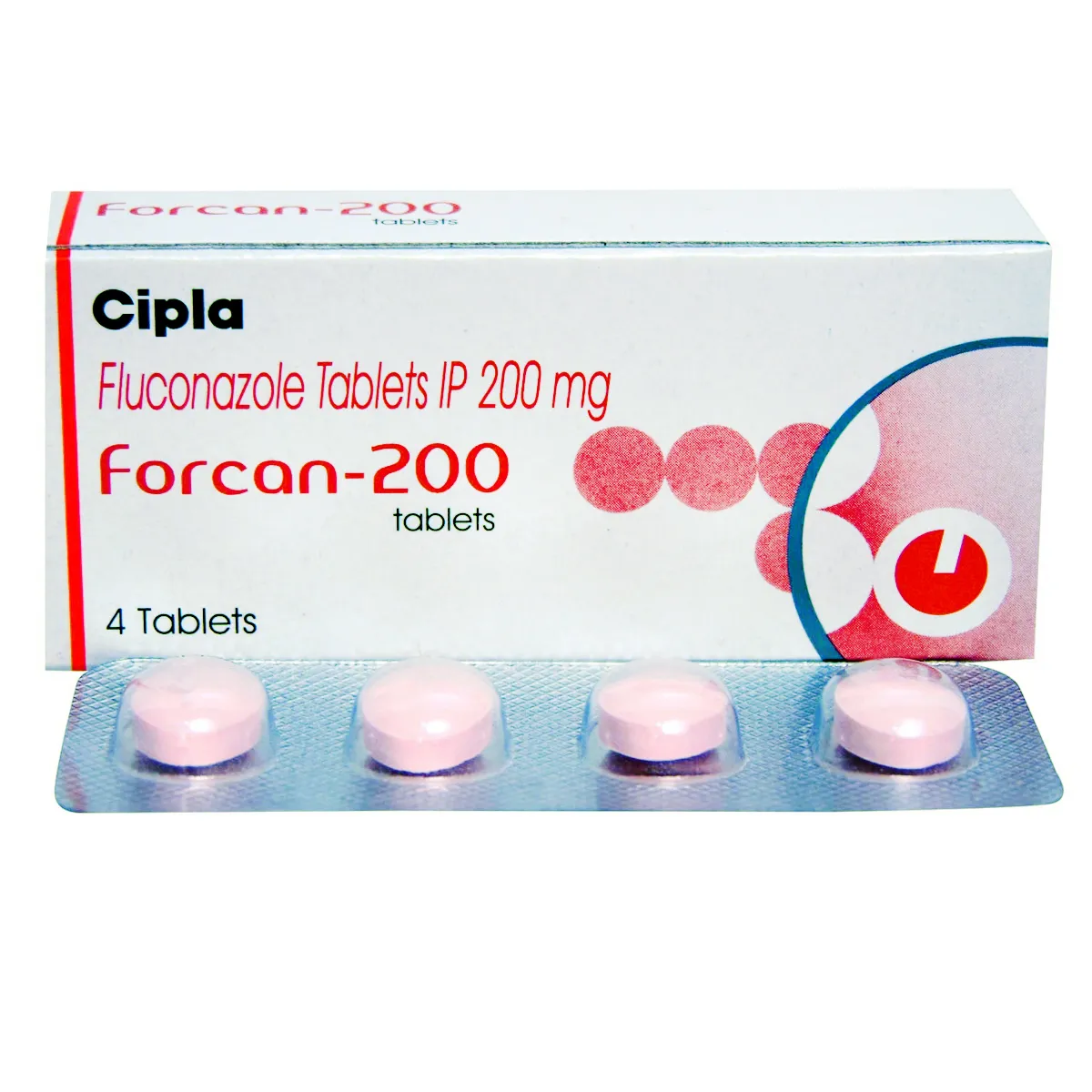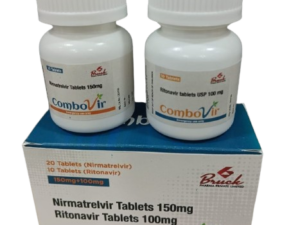Description
Forcan 200 mg Tablet – High-Dose Fluconazole for Serious Fungal Infections
Forcan 200 mg contains Fluconazole, a triazole antifungal agent used to treat a broad range of fungal and yeast infections. It is commonly prescribed in higher doses for more severe infections such as systemic candidiasis, esophageal thrush, and cryptococcal meningitis, especially in immunocompromised patients.
Key Benefits:
- Broad-spectrum antifungal activity against Candida and Cryptococcus species
- Used to treat severe or deep fungal infections
- Effective in patients with weakened immune systems (e.g., HIV/AIDS)
- Well-absorbed orally with once-daily dosing
- Manufactured by Cipla with reliable quality
How to Use:
Take this tablet exactly as prescribed by your physician. For systemic infections, treatment may range from several days to weeks depending on the type and severity. Do not skip doses or stop early, even if symptoms improve.
Precautions:
- Inform your doctor of any liver, kidney, or heart conditions
- May interact with blood thinners, anti-diabetic, or anti-seizure medications
- Not recommended during pregnancy unless necessary
- Monitor liver enzymes with long-term use
Storage Instructions:
Store below 30°C in a dry place, away from sunlight. Keep the blister pack tightly closed and out of reach of children.
Frequently Asked Questions (FAQs)
1. What is Forcan 200 mg used for?
It is used to treat systemic fungal infections, including esophageal candidiasis, cryptococcal meningitis, and severe vaginal or oral thrush in immunocompromised patients.
2. Is it safe for long-term use?
Yes, when monitored by a doctor. Long-term use may require periodic liver function tests and kidney monitoring.
3. Can Forcan 200 mg treat vaginal yeast infections?
It may be used in complicated or recurrent cases, but lower doses (e.g., 150 mg) are typically sufficient for uncomplicated vaginal candidiasis.
4. How soon does it start working?
Fluconazole begins acting within 24 hours. Visible symptom relief may take 2–4 days depending on the infection type.
5. Are there any common side effects?
Possible side effects include nausea, abdominal discomfort, headache, skin rash, and elevated liver enzymes. Serious allergic reactions are rare but require immediate attention.
6. Can I take it with other medications?
Fluconazole can interact with many drugs. Inform your doctor about all medications you are taking, especially anticoagulants, seizure meds, and diabetes drugs.





